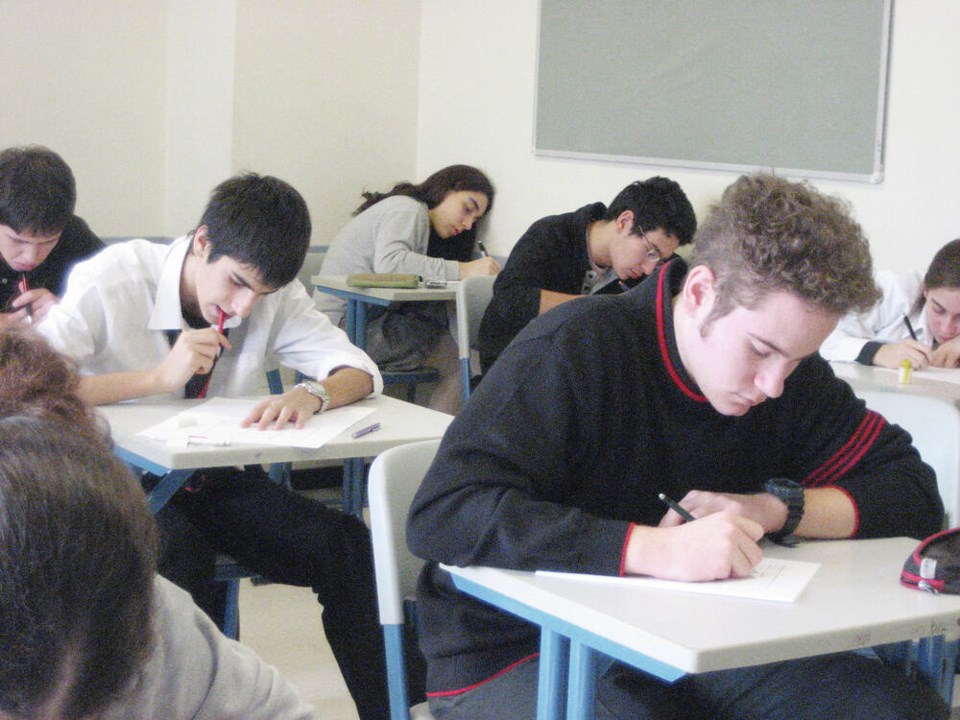The debate about the use of standardized tests as a measure of academic performance or potential has been reinvigorated by the decision of a number of U.S. universities and colleges to suspend the use of the Scholastic Assessment Test or SAT as a requirement for admission.
The test, also called the Scholastic Aptitude Test, has, since 1926, been used to assess students’ scholastic readiness for a U.S. college or university.
The SAT is of particular interest to Canadian high school athletes who aspire to pursue their sport at a U.S. NCAA school. A successful SAT result allows Canadians’ admission applications to be measured academically alongside those of every other student athlete in North America who applies to a university or college.
Gaining admission to a U.S. NCAA school is attractive to Canadian student athletes because it provides an opportunity to compete at the highest level of collegiate sports in North America.
Beyond that, NCAA schools often have well-funded state-of-the-art training facilities, and full-time coaching staff. Most NCAA schools also provide academic support that contributes to the athletes’ classroom success. All this is often supported by wealthy “boosters” or donors who also provide the funding for attractive scholarships.
Until now, the SAT has been a necessary prerequisite for Canadian student athletes to gain admission to NCAA schools. Students and sometimes private schools in Canada often hire retired teachers as SAT coaches.
But that may be changing.
According to a Forbes article by Natalie Wexler, a number of high-profile U.S. universities and colleges have recently announced a new test-optional admissions policy that does not require SAT scores.
It’s part of a movement by a number of high-profile schools to limit the role of standardized exams in determining college or university admissions, replacing test results with high school transcripts and records of achievement.
In her article, Wexler suggests schools that are ditching the SAT requirement are “betting the move will increase the number of students from groups that have historically been underrepresented on campus and also score lower on the tests.” In other words, it’s a diversity initiative.
How this change affects Canadian student athletes who previously submitted their SAT scores to NCAA schools remains to be seen, but it will probably increase the number of applications from within the U.S. and thus, the competition for placements.
In an article in the Washington Post, Harvard dean of admissions and financial aid William R. Fitzsimmons told writer Nick Anderson that students who do not submit standardized test scores “will not be disadvantaged in their application process.”
Fitzsimmons said those students’ applications will be considered “on the basis of what they have presented, and they are encouraged to send whatever materials they believe would convey their accomplishments in secondary school and their promise for the future.”
The article says many U.S. colleges and universities are running what amounts to a “multiyear experiment” to learn whether a test-optional admissions process can “diversify classes while upholding educational standards.”
The move away from the SAT as an admission requirement is not without its skeptics — and they are legion.
The question left hanging is whether the transcripts from high school A are equivalent to those from high school B. Classroom-based assessments do not use a common standard or benchmark from school to school.
In the same Washington Post article, Charles Deacon, dean of admissions at Georgetown University in Washington, D.C., argues that SAT scores provide an essentially level playing field in an era when many applicants present high school transcripts with all As or nearly all As. Grade inflation that was already “rampant” is now “through the roof,” he says.
In Canada, the situation is much the same in terms of a heavy reliance by colleges and universities on high school transcripts, although some programs may require specific standardized tests, such as the GRE (Graduate Record Examination) for graduate programs or the LSAT (Law School Admission Test) for law programs.
As the SAT vs. high school results debate rages on in U.S. higher-education circles, some institutions are staking out their positions.
As Liam Knox writes in the January edition of the online Inside Higher Education newsletter, New York’s Columbia University and William and Mary university in Williamsburg, Virginia, cemented their test-optional policies indefinitely last March, while the Massachusetts Institute of Technology in Cambridge, Massachusetts, and Georgetown University reinstated testing requirements in 2022.
Geoff Johnson is a former superintendent of schools.
>>> To comment on this article, write a letter to the editor: [email protected]




